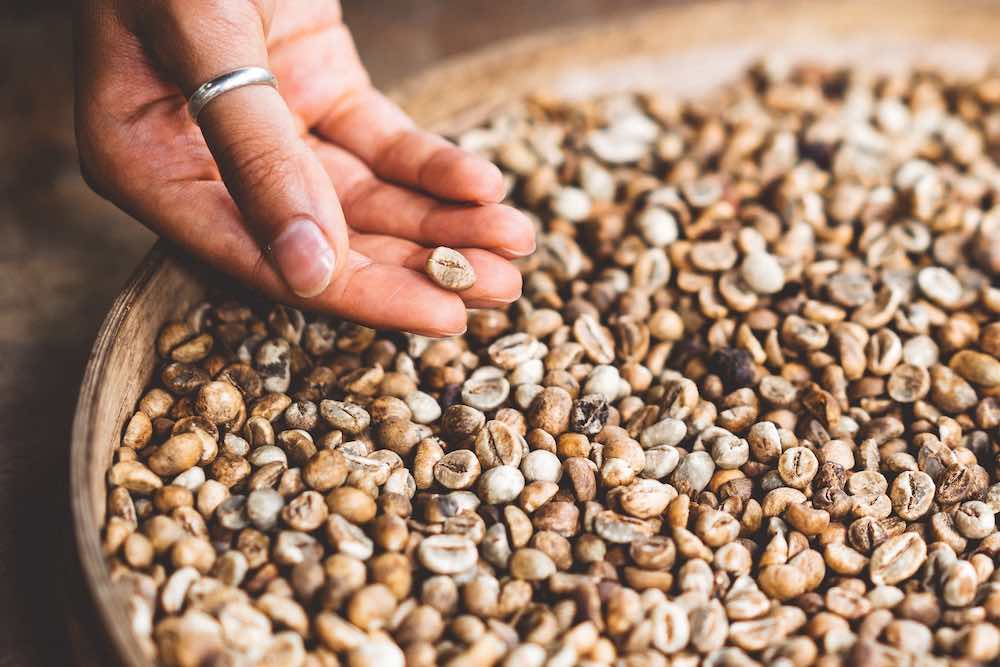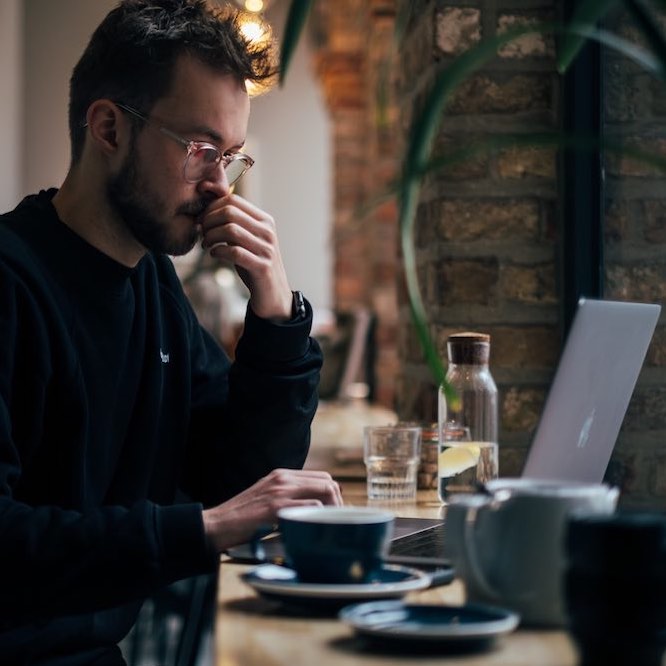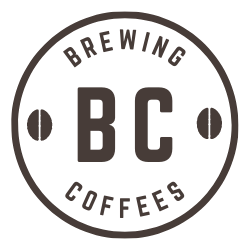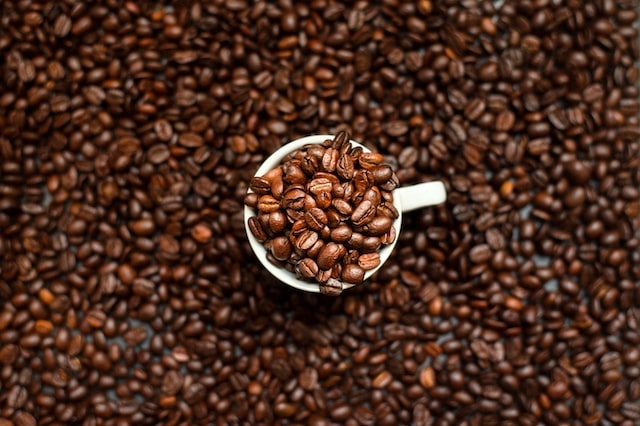As you may already know, the type of coffee grinder you use can make a real difference to your cup of coffee. However, you might reasonably expect the same grinder to perform equally well regardless of the type of coffee bean you are grinding.
Unfortunately, however, this is not the case. Even using the same grinder, some coffee beans are harder to grind than others.
In this article, we reveal why some coffee beans are harder to grind and explain how you can adjust your approach to grind even the hardest beans properly.
Two reasons why some coffee beans are harder to grind
Aside from the quality of the grinder, two factors affect how hard it is to grind coffee beans.
These are the density of the coffee bean and the brittleness of the coffee bean.

Coffee bean density
The density of the coffee bean is the amount of mass it has for its size. A large coffee bean with a low mass is much less dense than a small coffee bean with a relatively high mass packed into a small area.
Different types of coffee beans have different densities, which are primarily determined by the altitude at which they were grown.
When a coffee bean is grown at a high altitude, it takes a longer time to mature and become ready to be harvested. During this time, the coffee bean absorbs more sugar from the surrounding coffee cherry than it would be able to if it grew quickly. This not only gives the coffee bean a sweeter flavor but also increases its density.
As denser coffee beans are harder, they can be more difficult to grind. You may therefore find it harder to grind coffee beans that have been grown at a high altitude.
Coffee bean brittleness
Along with density, another factor that greatly affects how hard it is to grind coffee beans is brittleness.
If a coffee bean is more brittle, it will break up more easily in the grinder, while less brittle coffee beans will be more difficult to grind.
Fortunately, there’s an easy way to tell how brittle different coffee beans are likely to be. Simply look at whether the beans are light or dark roast.
Dark roast beans are roasted for longer, and the roasting process causes them to crack. This makes dark roast beans more brittle and, therefore, easier to grind than light roast beans.
How to adjust your grinding for different coffee beans
We’ve learned that coffee beans grown at high altitudes can be more difficult to grind due to their density, while lighter coffee beans can also be hard to grind, as they are less brittle than dark roasts.
So, if you’ve chosen a light roast coffee bean grown at high altitude, you and your grinder could be in for a tough time!
If you find that a particular type of coffee bean is hard to grind and your coffee grounds are more coarse than you would ideally like, then you have three options. You could upgrade to a more powerful grinder, grind the beans for longer until they reach the desired coarseness, or switch to a darker, more brittle roast to make grinding easier.
And, of course, you could also give up and switch to an entirely different type of coffee bean!
If you decide to extend the grinding time to grind down hard coffee beans, then, fortunately, there is no need to worry about harming the flavor of your coffee. As long as you aren’t grinding your coffee beans for a very long time (say, several minutes!), the taste of your coffee should be unaffected.
Summary
Grinding coffee beans can be difficult, especially if the beans are dense or brittle.
Density is determined by the altitude at which the beans were grown, and brittleness is affected by the roasting process. Dark roast beans are more brittle than light roast beans.
If a coffee bean is hard to grind, the options are to upgrade to a more powerful grinder, grind for longer, or switch to a darker roast.
Grinding for a longer time will not affect the flavor of the coffee.
When you choose your coffee beans, keep in mind that the density and brittleness of the bean can affect how easy or difficult it is to grind.
If you find yourself struggling to grind a certain type of coffee bean, consider switching to a different bean or adjusting your grinding technique.
FAQ – Why are some coffee beans harder to grind?
Yes. Coffee beans grown at high altitudes can be more difficult to grind due to their density, while lighter coffee beans can also be hard to grind, as they are less brittle than dark roasts.
The two things that affect how hard to grind your coffee beans are is the 1) density of the beans 2) the brittleness of the beans. As denser coffee beans are harder, they can be more difficult to grind. This is typical for coffee grown at high altitudes. If a coffee bean is more brittle, it will break up more easily in the grinder, while less brittle coffee beans will be more difficult to grind.
The two primary reasons are the density and brittleness of the coffee beans. These are the two key factors that affect how hard to grind a bean will be. It has to do with how easy the bean breaks up in your grinder. A lighter bean is likely to need a finer grind.
If your coffee (e.g. an espresso) tastes sour, watery and/or weak. That’s normally the best indication that the grind is poor.

Hey there! I’m Austin and I love coffee. In fact, I drink about 5 americanos a day. I started BrewingCoffees because I wanted to share my love of coffee with the world. Before starting BrewingCoffees, I worked as a Barista for 7 years.


Leave a Reply